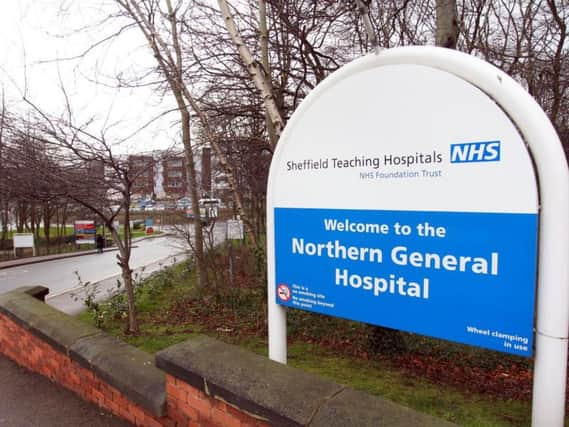Sheffield NHS bosses issue hospital warning due to snow and ice


NHS chiefs in the city are urging people NOT to attend A&E at the Northern General or any other hospital in Sheffield due to the treacherous conditions on the roads unless it's 'absolutely urgent'.
An ambulance had to be pulled out of heavy snow in Norton Lees earlier today as the weather caused travel chaos across the city.
Advertisement
Hide AdAdvertisement
Hide AdDr David Throssell, medical director at Sheffield Teaching Hospitals NHS Foundation Trust said: “We have a winter plan which covers adverse weather and so when the forecast was issued earlier in the week we began to take appropriate measures to enable services to keep running.
"We have not cancelled any planned appointments or operations today thanks to the tremendous support of our staff, and our community teams have literally gone the extra mile to get to patients on foot in many cases.
"We have not seen particularly high numbers of people coming into A&E with snow or ice injuries. The weather forecast is suggesting there will be more snow tomorrow and so we are asking visitors to consider not visiting unless it is urgent given the road conditions and because they may not be able to get back home.
"Patients should continue to attend for appointments or procedures tomorrow unless notified by us. Community teams will be making every effort to get to patients tomorrow but this may take a little longer than normal.”
Advertisement
Hide AdAdvertisement
Hide AdThe Yorkshire Ambulance Service also thanked the dozens of volunteers who have stepped forward to help the stranded ambulance out of the snow.
Paul Stevens, head of community resilience at Yorkshire Ambulance Service NHS Trust, said: “During the winter period, and particularly when we are experiencing severe weather conditions, ensuring our frontline resources can reach those patients who urgently require clinical intervention is our priority. Some of our patients may be in outlying areas across Yorkshire and this becomes increasingly challenging. By utilising our CFRs, we can provide support to patients until an ambulance arrives on scene.
“We also have a number of CFRs with 4x4 vehicle capability who have made themselves available to support our frontline service and patients within their communities where hard-to-reach locations and difficult terrain have presented us with problems.”